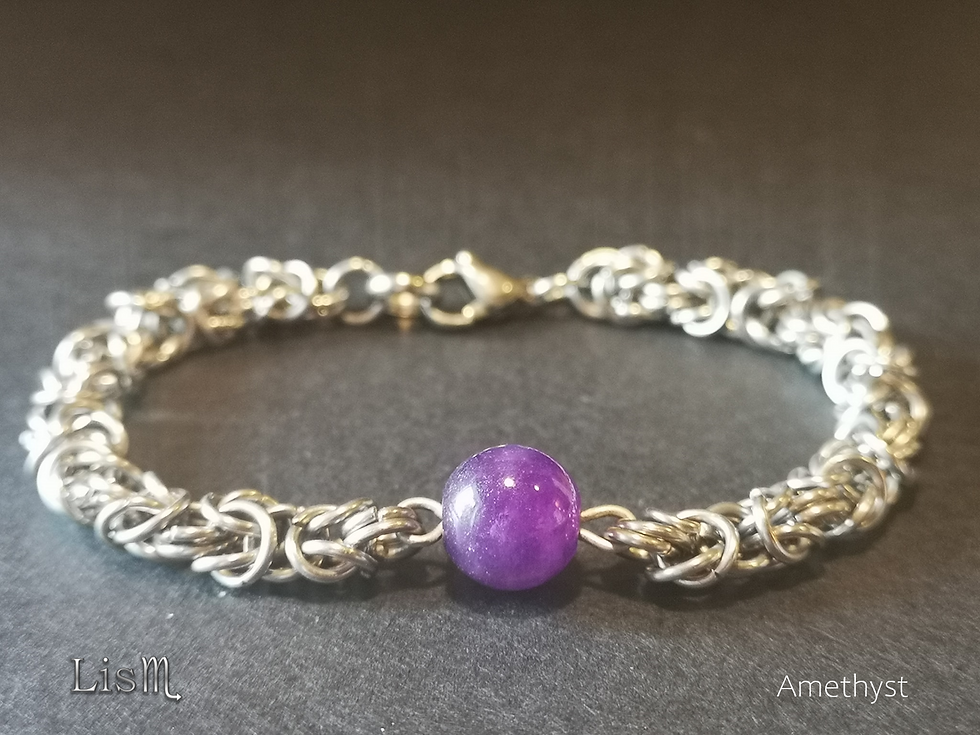
Door 3
03 Dec. 2018




Amethyst angels
This lovely Amethyst angels jewelry set is hiding behind door # 3. The body and head is stunning 10 mm and 6 mm amethyst beads, and all the silver details are copper alloy. The pendant comes with a 2 mm 925S silver plated cuban link chain.
Height pendant: 3 cm / 1.2"
Length necklace: 50 cm / 19.7"
Length earrings: 4.5 cm / 1.7"
Amethyst is a semi-precious stone in today’s classifications, but to the ancients it was worth as much as diamonds.
It's said that the amethyst has the ability to expand the higher mind and that it enhances one’s creativity and passion. It also strengthens the imagination and intuition, and refines the thinking processes. It helps in the assimilation of new ideas, putting thought into action, and brings projects to fruition.
Shipping costs are calculated from both the size of the package and its weight.
The shipping costs for this item with standard priority mail (covered by the winner):
Within Norway: 26,- NOK
To Europe: 32,- NOK
To the rest of the world: 39,- NOK
Today's question:
t
(the answer is found in the text below)
The quiz is now over. Please try today's door.


Drikke jul
The god of jól had the name Jólne, and that was Odin. This name is found in the scaldic poetry Jolna Sumbl, and means Odin's intoxication or Odin's drink. Drinking beer gave people the courage needed to turn to the gods. This would take place in an intoxicated state, because that would make it easier to connect with the gods.
In pagan times drekka jól (drinking jól ) was a symbol of an offering to the pegan gods, but with Christinity this beer drinking was "Christianized".
Already in the oldest editions of the Gulatings- og Frostatingsloven (law from the 10th century, written down in 13th century and the oldest known law in Norway), it was ordered to brew beer for Christmas. It stated that the beer was to be sanctified and drunk as thanks to Christ and St. Mary, for good years and peace.
This offering drink was therefore no breach of the traditional pagan culture, and the term drinking jol was kept as the common expression of Christmas celebration until the 16th century.
Photo source: http://groups.calafia.org/viking/2014/12/15/our-meeting-for-december-jul/





































